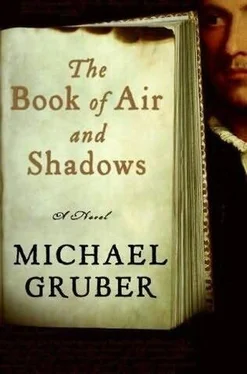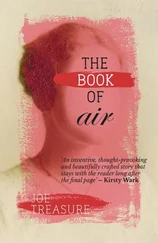You know, you read in the paper about people who have a firearm in the house and the kid gets hold of it and does something awful, the lesson being that kids will always find the gun, no matter how carefully the parent has hidden it, but as far as I know none of us ever found our mother’s Pistole- 08, none of us even knew she had it. I suppose she was a genius at concealment, a trait her children have inherited to an extent. My siblings don’t know I have it, or perhaps they are themselves concealing this knowledge. It took some doing, since technically it is an unlicensed weapon, but those with connections can usually get what they want in the city of New York, and at the time of my mother’s death I was working for one of these, a fine legal gentleman named Benjamin Sobel. When I explained the situation to him he arranged for the police to return the thing to me, although I did not expatiate upon its provenance. A valuable souvenir of the war, I explained, that could be sold to pay for the funeral expenses. But I didn’t sell it, and the expenses were slight. Paul was in jail, and Miri was off on someone’s yacht, and so it was a small band of strangers at the cheap funeral home, some people from her church and her work at the hospital, and me; her priest did not show, I assume because of the circumstances of the death, one of the sins for which I have not been able to forgive my church.
I kept her ashes in a tin can in my apartment until I got my first job and then I bought her a slot in a community mausoleum at Green-Wood Cemetery in Brooklyn, not too far from Albert Anastasia, Joey Gallo, and L. Frank Baum, the author of The Wonderful Wizard of Oz, so she’s in good company. I believe I have forgiven her, although how does one really tell? I have never figured that part out. I know she was making a point because she knew I was on my way back to Brooklyn that Saturday afternoon. As the Official Good Son, I often submitted to mass at St. Jerome’s, preceded and followed by heavy Teutonic dinners and evenings of TV or cards. This particular Saturday, she had actually put the dinner on, sweet and sour tongue with dumplings, one of my favorites actually, and its odor filled the apartment as I walked into the kitchen and found her. She had arranged the chair she sat in just so and spread newspapers all around so as not to make a mess when she put the muzzle in her mouth.
I relate this to demonstrate my near-perfect insensitivity to the interior states of my dear ones, which I suppose is a key to some aspects of this story. I really had no idea at all, although I saw poor Mutti nearly every week. Yes, Ermentrude played her cards pretty close, but still, shouldn’t I have suspected something? Some terminal depression? I did not, nor was there a note. Forty-four years old.
Earlier, before I entered my terrible puberty, we were unusually close. During my ninth year, by some happy coincidence, I had an early school day and my mother had moved to the late shift at her hospital, so we met and had biweekly Oedipal Theater. She would bake treats for me on those days, marvelous Bavarian delights rich with nuts, cinnamon, raisins, stuffed into leaf pastry thin as hope, and the smell would hit my nose in the hallway as I left the urine-stinking elevator, like a presagement of paradise. And we would talk, or she would talk, mainly reminiscences of her girlhood, her marvelous girlhood in the New Germany-the music, the parades, how beautiful the men looked in their uniforms, how wonderful her father, how kind everyone was to her. She actually served as one of those little blondies you see in old newsreels presenting a bouquet to the Führer on an official visit. It was set up through her dad’s contacts in the Party, and she recalled every detail, how proud she was, how the Führer had cupped her little face in his hand and patted her cheek. Yes, the cheek I kissed every day. Lucky Jake!
About the bad stuff that came later, not so much talking. I don’t like sinking about zose days, she said, only of zhe happy times I like to sink. But I pressed and learned about the rats and the flies, the absence of pets, the smell, what it was like to be bombed from the air, more about the smells, the exploded bodies of her friends and their parents, the peculiar juxtapositions created by blast, the bathtub blown through a schoolhouse wall and resting on the teacher’s desk. How the children laughed!
When I cleaned out her stuff I found a trove of family memorabilia that she’d never shown us, but which she must have been carrying around in her suitcase when she met Dad: letters home from the various fronts, photographs of the family, school certificates, vacation postcards. It included a good deal of Nazi stuff, of course, awards from the SS, my grandfather’s various medals, and the rosewood presentation case for the pistol. One photograph in particular I rescued and later had framed, and it is still in my bedroom. It is of her family, just before the war started, at some beach resort. She’s about ten or eleven, lovely as a nymph, and the two older brothers are there in their old-fashioned knit bathing suits, grinning blondly into the sun, and my grandmother is looking quite svelte in a one-piece suit, reclining in a deck chair and laughing; and leaning over her, sharing the joke, is the then Hauptsturmführer-SS Stieff. He has obviously just come to the beach from work, for he is in tie and shirtsleeves and carrying his tunic, accoutrements and hat, and unless you look very carefully, you can’t see what kind of uniform it is.
I like this picture because of how happy they all look, although they lived under the worst regime in human history and the father of the family worked for an organization bent on genocide. In contrast, there are no such pictures of my family, for although we had our laughs, my father was not into photography, and, unlike his late father-in-law, had a positive horror of being captured on film. The only family pictures we have are stilted department store poses taken on our birthdays or else records of events-first communions, graduations, and so on, plus many snapshots taken by neighbors or strangers, for, as I have suggested, with the exception of myself, my family is unusually photogenic.
No, let’s tearourselves away from the distant past (if only!) and back to the main story. Miranda and I agreed that she could not be left alone. I made arrangements for Omar to come by and exercise his protective skills, and further arranged that he should stay over and add a little firepower in case they tried anything else once they found that the briefcase lacked what they wanted. This left the question of why Russian-speaking toughs had become interested in Richard Bracegirdle’s personal history. Could Bulstrode have had some original connection with them? I asked Miranda and she looked at me like I was crazy. Uncle Andrew hardly knew anyone in New York aside from scholars, and he had never so much as mentioned any Russians, criminal or otherwise. Freelance thugs then? More likely. Despite the fictions of TV, organized crime has become somewhat more Russian in the past few decades: the Mafiya, so called, but not by the Russians. Someone looking for frighteners, strong-arm guys, torturers, had found a contractor. Who this person was remained obscure, but finding him (as I now explained to Miranda) was not our job. What we had to do was keep her safe, which I thought Omar could handle, and turn the recent developments over to the police.
Around eight, a fellow called Rashid came by from a hire agency to drive me to work. I left Omar in the loft with Miranda, with instructions not to let her out of his sight, and I cut short his eager description of how well armed he was. I didn’t want to know. At the office, I called Detective Murray and related what had happened the previous night. He asked if I had the license plate of the car and I said I hadn’t and he said he didn’t see that there was much that he could do about the loss of a briefcase, and he’d transfer me to an officer who’d give me a case number for my insurance. I got a little steamed at that and pointed out that this incident must be related to the murder of Andrew Bulstrode, which he was supposed to be investigating, and there was a pause on the line after which the detective asked with heavy patience how I figured that. And then I told him about Ms. Kellogg and how someone with an accent was trying to get an old manuscript from her, one that Bulstrode had owned, and how the men who had attacked us had spoken in what seemed like Russian, and it had to be all connected. He asked me what this manuscript was worth and I told him Bulstrode had bought it for a couple of thousand dollars, but…
Читать дальше












